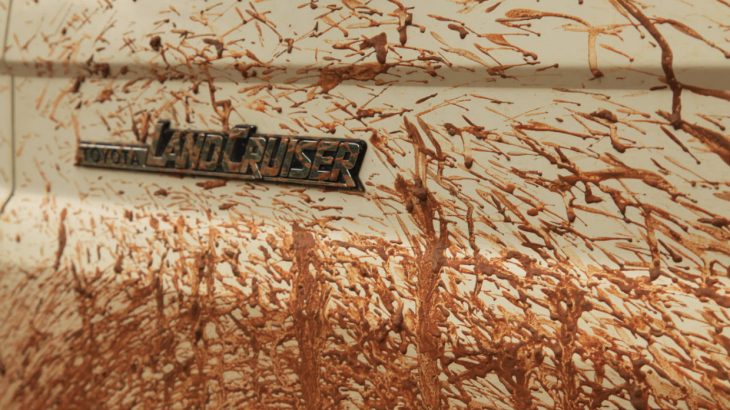We approached the Zimbabwe border with a mixture of excitement and trepidation. Excitement because it was an opportunity to explore a new country for a few weeks, and nerves because we had read of so many people having negative experiences on the road. Before crossing the border we checked and double checked Zimbabwe’s road rules, and ensured that our vehicle met all of the requirements.
It’s true to say that there are a frustrating number of police roadblocks, but this is just unfortunately a way of life in current day Zimbabwe, although one can only hope that this improves before too long. Despite it’s ongoing issues, Zimbabwe is such a fantastic country! The following tips are to help you enjoy it as much as we did:
What to do when stopped at a Zimbabwe road block:
- Approach roadblocks slowly and with caution, even if it looks like you are just being waved through, make sure.
- Don’t flaunt wealth by having multiple gadgets on show.
- Always address authorities as ‘sir’ or ‘mam’.
- Always remain friendly, patient and courteous. In most cases you should receive the same back.
- Ensure you know where you have come from and where you are going. It sounds a bit silly, but being at all vague (especially if names are not familiar to you) doesn’t give a good impression.
- When you are stopped, after greetings and pleasantries, ensure that you say you are tourists (if indeed you are) and here to see Zimbabwe. We found that most of the authorities were pleased to host visitors in their country and would be happy to help with directions or talk about their national parks.
- Don’t be rushed, if you are accused of breaking a rule, stay calm and verify if a) the rule exists (see below) and b) if you have really broken it. Often the police will tire as they see other motorists (and money!) driving past.
- Most importantly, if you are in the wrong (and make sure you are in the wrong!), then pay up!
- Don’t pay bribes, it only makes the situation worse for everyone else – it’s also illegal.
What paperwork do you need for Zimbabwe?
Always check the latest rules and regulations, but at the time of writing this is a good guide:
- Valid driving license from your home country. An International Driving Permit is also advisable as it gives you a backup if someone wanders off with your original (although it’s only technically required if you hold a non-English language driving license).
- A Temporary Import Permit (TIP) or Carnet de passage. TIPs are bought at the border, whilst Carnets need to be arranged in advance.
- Third Party Insurance, also arranged at the border (even better, check out COMESA insurance).
- Road / Carbon tax, also arranged at the border.
- Passport with valid visa and visa receipt. You might think a visa in your passport is sufficient evidence of a having visa, but we’ve heard reports of tourists being fined for not having the receipt. You will be issued one at the border, so you might as well hold on to it.
- It’s also very sensible to carry a print out of the current rules and fines. Often, if police see this document they are much more reluctant to start making up new rules.
Ensure that you have all of the correct paperwork, and that you always carry this in the vehicle with you. We were so worried about misplacing one document that we left it in the hotel room for safekeeping and consequently received a fine for not having the document with us in the vehicle! Whilst an irritating situation (and we did offer to drive back with the document) we were technically in the wrong. Of course the police were far more interested in fining us, than verifying if we had the actual document. This was however, the only fine we received over a three week period and at least 50 road blocks.

Vehicle regulations for driving in Zimbabwe
Here’s a list of the current rules, always check you have the latest information:
- 1kg serviceable fire extinguisher.
- 2 x breakdown triangles – these are supposed to be reflective on both sides.
- 2 x reflective vests – reports that this is no longer legal requirement.
- Serviceable spare wheel, jack and wheel spanner.
- No missing wheel nuts.
- GVM stickers (on left side).
- Country of origin sticker (i.e. ZA) on rear.
Honeycomb/diamond reflectors in the following positions:
- 2 x white either side at front.
- 2 x red either side at rear.
- Continuous yellow reflector strip down sides of vehicle and trailer if combined length is more than 8 metres.
- Continuous red reflector strip to within no less than 400m of outer edges at rear (for bakkies, twin cabs and light trailers).
Fuel availability in Zimbabwe
There have been issues in the past with fuel availability. Before entering Zimbabwe we ensured that we had a full tank and several spare Jerry cans and would fill up whenever we could, not leaving it until we ‘needed’ fuel.
I’m pleased to report that in April/May 2017 we did not experience any issues with availability, and even managed to pay for diesel on credit card (although most places will ask for payment upfront if using card). Unsurprisingly the price of fuel was more expensive in Zimbabwe than in bordering countries.
Most places had diesel 500, and many even had diesel 50.
Legalities, tips and common sense for driving in Zimbabwe
- Currently only two additional lamps fitted to the vehicle allowed.
- Two-way radios are illegal without a special permit. Check out Zello as an alternative option.
- While it is not a legal requirement like it is in Mozambique, keep the back of your cab clear/as tidy as possible.
- Drive on the left.
- Pay extra attention to keeping between white lines when approaching a roadblock.
- Wear seatbelts.
- Don’t use your mobile phone when driving.
- Don’t drink and drive.
- Don’t speed.
- On rainy days there seemed to be fewer police, so these are good days to drive!
- We found the police a lot more relaxed in some provinces/districts than others, so if driving a long way, be prepared that the police may respond differently in some areas.
Is driving in Zimbabwe worth the effort and hassle?
Based on our experience, undoubtedly yes! If you do visit, I’m sure you’ll have a wonderful trip – please do tell others and help encourage more visitors to this beautiful country.
A good source of current information is the DriveZim group on Facebook.







 Jessica has an interest for sustainable tourism, and is particularly passionate about Southern Africa and all it has to offer. She is currently overlanding across 10 countries in the bottom half of the continent, and creating these resources en-route, to help others plan their own African adventures.
Jessica has an interest for sustainable tourism, and is particularly passionate about Southern Africa and all it has to offer. She is currently overlanding across 10 countries in the bottom half of the continent, and creating these resources en-route, to help others plan their own African adventures.